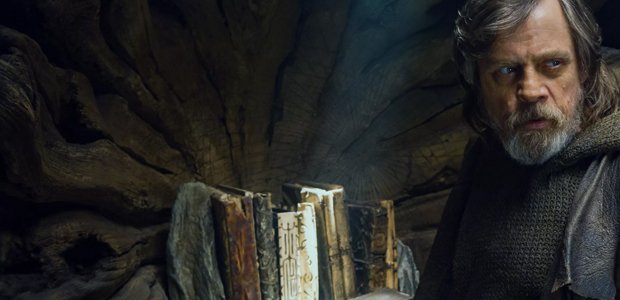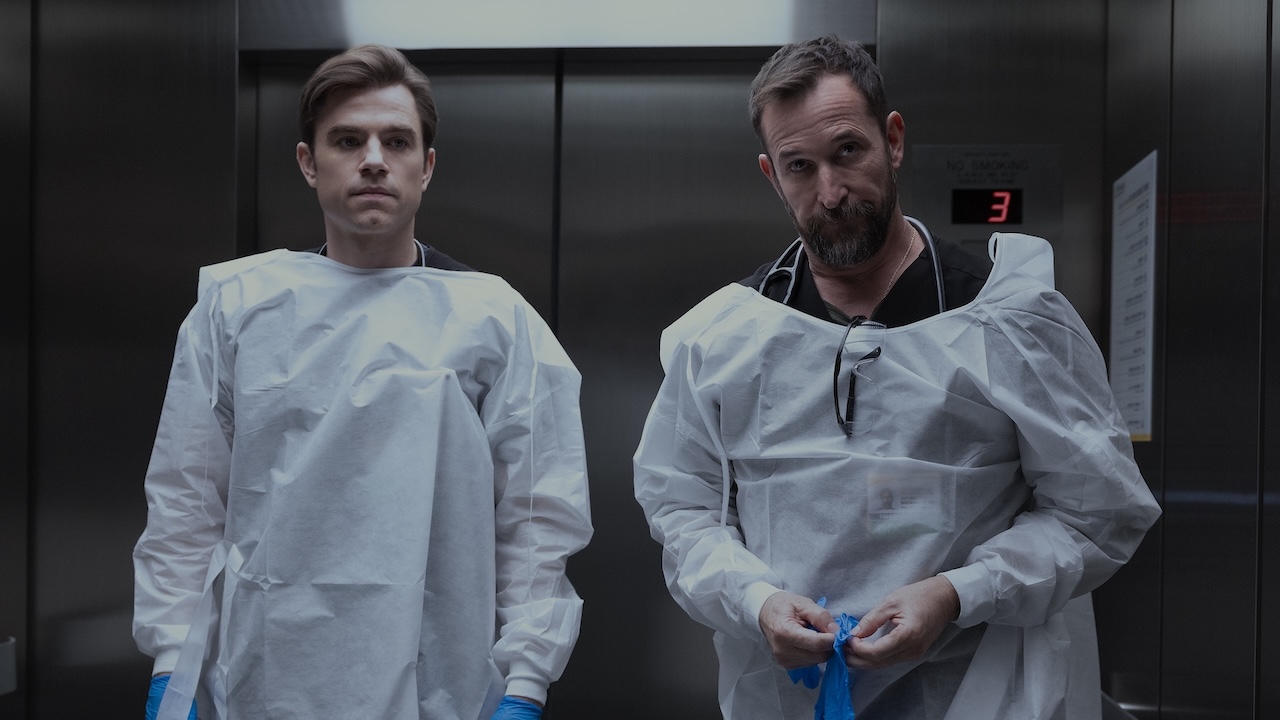There is a special, inherent challenge in crafting the second chapter of a story designed as a trilogy. As a direct sequel, its job is to adopt certain story threads from its predecessor and weave a unique, independent narrative. But traditionally, they're also meant to avoid certain firm conclusions and keep specific doors open so that they can be closed in the finale still to come. This is an issue that has long been associated with the Star Wars franchise, going back to 1980's The Empire Strikes Back. As iconic as that film is, and as much as it adds to the macro arc, it famously is much more about moving pieces around on a chess board than it is about telling a complete story.
It's with that in mind that we come to writer/director Rian Johnson's Star Wars: The Last Jedi, the anticipated sequel to J.J. Abrams' Star Wars: The Force Awakens, which was designed with the intention of being released two years before the untitled Star Wars: Episode IX in 2019. Because of its position within the big picture scheme, many have naturally viewed the blockbuster with certain expectations -- fervently wondering which hotly debated franchise questions will be addressed, and which will be saved for the anticipated follow-up. It's an earned atmosphere generated from the love that the movies have inspired for decades... but watching the film you recognize that it fully expected those expectations.
The ultimate trick is that Star Wars: The Last Jedi never fully leans into those history-driven anticipations, and walks away the better movie for it. Any time you think you have a full grasp on everything that's going to happen, it finds an avenue to subvert, and in the process both swiftly moves pacing-wise and builds characters in fascinating ways. To paraphrase Mark Hamill's Luke Skywalker in the film, the movie doesn't go the way you think, and it coalesces as one of the most surprising and original titles in the saga.
Impressively, the film isn't subtle about its awareness either -- going much further than Skywalker's aforementioned meta dialogue. Beginning from a timeline perspective, Star Wars: The Last Jedi breaks from tradition, being the first sequel that picks up immediately after the previous story. Opening heroic-yet-reckless maneuvers have immediate and shocking consequences. Even Luke's first reaction after being reunited with his long-lost Lightsaber goes down in a way that defies every prediction out there. It sets you up for what is an integral part of the fabric of the movie: a recognition that the universe is not black and white, and that just because you think you know what's going to happen because all evidence points one way doesn't mean that you actually fully recognize the reality of a situation.
Without going full-bore into heavy plot details (it's a movie best seen knowing very little), there is a healthy number of subplots that keep the main characters engaged and active throughout a pressure-cooked narrative -- but it should be recognized that not all of the material is as strong as the rest. The best is represented by Rey, once again brought to life with an emotional, powerful turn by Daisy Ridley, who has far and away the strongest material in this movie. Paired with Luke Skywalker (Mark Hamill) to not only explore her personal, powerful connection with The Force, she's also positioned to understand what exactly happened between the legendary Jedi and his last student, the young Ben Solo a.k.a. Kylo Ren (Adam Driver). Oscar Isaac's Poe Dameron, meanwhile, finds himself running into serious and surprising conflict within the hierarchy of the Resistance, with his hot shot attitude causing him to butt heads with not only General Leia Organa (Carrie Fisher), but the newly introduced Admiral Holdo (Laura Dern). In both cases, we see a natural extension of character arcs from Star Wars: The Force Awakens that do a fantastic job both moving the story forward and totally changing our perceptions of both heroes and villains.
It's not all great, however, as Star Wars: The Last Jedi does have a clear weak spot -- specifically the side plot that develops between Finn (John Boyega) and newly-introduced Resistance member Rose Tico (Kelly Marie Tran). Following a genuinely funny meet-up between the two characters, they are given their own special mission searching for a codebreaker who can assist in the battle against the First Order. But this storyline never feels particularly inspired or impactful as everything else going down in the movie. While it is constructed to fit with the larger themes of the film, features its own interesting expectation-flipping turns, and does eventually have a key impact on the macro scale, it's also the only part of the feature that ever feels expendable, and not helping anything is that it features the weakest visual effects of the blockbuster (especially during a second-act chase sequence).
While not every part of Rian Johnson's script plays precisely as you want, what he does truly nail with his chapter in the Star Wars saga is character development, following up on what was also the greatest strength of Star Wars: The Force Awakens. Though the franchise has always been about the stark contrast between the Light and the Dark, Johnson uses The Last Jedi and its heterogeneous ensemble to ever so slightly muddy those waters, adding surprising complexity to our perspective of each individual, while never losing sight of what is good and what is evil. By the end of the story, both circumstances and particular revelations leave you looking at all of the main players in a completely different light, all of them set up for big things in the next chapter.
Your Daily Blend of Entertainment News
Propped up by strong material, every member of the Star Wars: The Last Jedi cast delivers performances worthy of the iconic franchise, but deserving special mention is Mark Hamill. The Force Awakens was partially built as a showcase for Harrison Ford's Han Solo, and this new film is really the same thing for Luke Skywalker -- reminding the audience of everything we love about him while simultaneously challenging our principal perception. Luke has a much harder edge than when we last really saw him in Return of the Jedi, his relationship with Rey sometimes as coarse as sandpaper, but Hamill more than effectively brings back the spirit of the legendary hero, and it's a remarkable thing to see him back up on the big screen. Again, it's not everything that you're expecting, because that's not the game that this movie is playing, but that really just makes The Last Jedi better.
In retrospect, Star Wars: The Force Awakens was a safe blockbuster, effectively riffing on and reflecting A New Hope while introducing audiences to a new generation of characters. Star Wars: The Last Jedi, however, does not play it safe. Not only are there no direct comparisons to make between it and any other story in the franchise, but the way it leaves things even prevents future chapters from trying to go back to that route. It's a game-changer for the series as a whole, and an immensely impressive one at that.

Eric Eisenberg is the Assistant Managing Editor at CinemaBlend. After graduating Boston University and earning a bachelor’s degree in journalism, he took a part-time job as a staff writer for CinemaBlend, and after six months was offered the opportunity to move to Los Angeles and take on a newly created West Coast Editor position. Over a decade later, he's continuing to advance his interests and expertise. In addition to conducting filmmaker interviews and contributing to the news and feature content of the site, Eric also oversees the Movie Reviews section, writes the the weekend box office report (published Sundays), and is the site's resident Stephen King expert. He has two King-related columns.

